My childhood taught me I was worthless. This is why, at the age of fourteen, when my first serious boyfriend punched me in the stomach at a fast-food counter because I couldn’t make up my mind what to order, I thought I deserved it. My friend Shep picked me up off the floor and took me to a separate table. He urged me to finish with my boyfriend. I didn’t know that being punched wasn’t normal. Maybe it was just part of being in a relationship? I genuinely didn’t know. But I thought I deserved it. Though I finished with that boyfriend on the spot (and then went to see the Buzzcocks1 with him and Shep, because we had seats next to each other) by the next day I had accepted his tearful apologies and taken him back.
Because by fourteen, I had been trained to understand I was a third-class citizen. People say second, but second really wasn’t low enough. The adults were first, my step-sisters were second, my siblings and I were at the bottom. The detritus. This was demonstrated to us every single day by one of the most basic components of a human life: food.
When I was eight, my mother had moved us into a fancy Victorian townhouse with our new stepfather, a local GP, and the regime of what I came to call Food Apartheid began. The adults had good food. We had cheap food. My stepfather had Kellogg’s cornflakes. We had “Wavy Line” (the cheapest brand from the Spar). My stepfather had butter. We had one-litre tubs of cooking margarine from the Cash n’ Carry that smelled like engine oil. My stepfather had gold-top milk (creamy). We had silver top.
We were not under any circumstances to eat any of Colin’s food.
There were two separate food cupboards, one in each alcove either side of the chimney breast. To the left (a pale green), Colin’s cupboard, for so it was named. Here was all the exciting food, including tins of lychees, and of course the Kelloggs Cornflakes. To the right (a garish pink in our day), our cupboard containing own-brand cereals, marmite, jam, and lots of things beyond their recommended use-by dates, bought half price.
The adults ate separately, and had proper evening meals. We kids were fed at tea time and had bread and butter and jam. For ten years, bread and butter and jam. Mum said we only needed one cooked meal a day, and we had that at school. At weekends and in the holidays we’d have something hot: beans on toast or poached egg on toast or haddock and poached eggs on toast, or baked potatoes and cheese, and on the best days tuna casserole or spag bol. But mostly it was bread and butter and jam. And then at eight o’clock, my mum and stepfather would sit down to something delicious and meaty, with gravy and vegetables.
Except on Tuesdays and Saturdays. Those were the days our three stepsisters would visit. Though it was mostly still bread and butter and jam on Tuesdays, it would come with special jam and a special dessert, and on Saturdays, a proper cooked meal, because my stepfather would be present. But the pecking order still existed. In June, when we might be lucky enough to have strawberries and cream because my stepsisters were at the table, they would be served first. My three siblings and I would share out smaller portions of whatever was left: as I put it in my poem ‘The Means’, “the purple, squashy ones.” And with everyone else having been served lashings of single cream we’d be left, very often with the dregs… or no cream at all.
And the special jam? One of the moments that has gone down in sibling history was when my brother Peter, newly emboldened by the fact that he had cancer and had recently come home from having a piece of his hip bone removed, had the audacity to reach out and pick up the loganberry jam, which my stepfather had made himself. Colin had a way of starting most sentences with a kind of throat clearing and this is where I wish I had the chance to record this for you and do a Colin impression, but right now I am in Amsterdam, sans microphone. When he told my brother he could not have the loganberry jam, my brother asked ‘Why?’
I swear the excitement at that table was palpable. No-one, EVER, had challenged the Regime. Food Apartheid was law, and by then, we had lived under it for six years. But there it was, from my brother.
“Why? Why can’t I have the loganberry jam?”
My stepfather answered with colour rising in his face,
“Because you didn’t pick the ruddy berries.”2
“I was in RUDDY hospital!”
My brother, the hero. He was the only one of us to brazenly eat a spoonful of “Colin’s food” to the man’s face. But only because he had a 30% chance of dying (a chance he unfortunately took up).
Food Apartheid was profoundly damaging to every one of us, I think, but I can only speak to the effect it had upon me. I didn’t only teach me that I was worthless. It taught me to be deceitful. Rebelling against the unfairness of it, we looked for the tiniest of ways to feel better about ourselves, which turned into looking for chocolate. Colin was a chocoholic and Mum would buy him wholesale boxes of sweets. Four dozen Lion Bars, strip upon strip of orange Club Biscuits, bags and bags of Maltesers. These treasure chests were hidden around the home and the minute our parents left the house together, we’d go looking for them. Maltesers were the easiest to steal without leaving a trace because you could shuffle the bags around in the box. Bars would be counted, unless you ate a level at a time. Once Colin had worked out we were thieving from him, alcohol levels were noted, so we would steal only the white spirits and top them up exactly to the lowest of the tiny marks on the label.
To steal the cream off the gold top milk for my cereal, I had two techniques. We lived in the era of doorstep deliveries and blue-tits learning to peck into the foil lid for the cream, so if I was taking the milk off the step and the adults weren’t around, I’d use a skewer to pretend to be a bluetit, and siphon it off upwards through a straw. If the milk was already in the fridge, I’d rotate the gold cap continuously until it was a little giving, then gently slip it upwards, uncreased, and afterwards — the cream replaced by silver-top milk — place it back and tighten it as best I could. It would always be slippy, but I never got caught for this one.
The real treat was lychees. Colin had too many tins to count (gifted them by Mr Ho, who ran Colchester’s only Chinese Restaurant, the Rice Bowl) so didn’t miss them, but it was essential to destroy all evidence. This led to excess by necessity. Where a reasonable portion might be half a tin, I would have to eat all the lychees so that I could strip off the label, burn it, and bury the tin under the empty dog food cans.
It took me a long, long time to understand Food Apartheid. There’s me, in my mid-thirties with my three kids at my first ever festival, queueing for the crepe van, and I’ve already decided (crappy childhood reward) I’m getting the most expensive one with black cherry and cream. My eldest tells me he’d like that too, and I hear myself saying, “No, you three will all have the lemon juice and sugar one,” (the cheapest), and the full horror falls on me. It was about MONEY! Naturally, I immediately say sorry to my kids, and get them the crepes they actually want. I can’t believe I was about to do a Colin on them! But I am also saying, “Oh my God. It was about MONEY!”
My stepfather was wealthy and my mother was not. She came with four kids and he didn’t want to support them. I don’t know if Dad was paying any child support. I never asked, but I suspect possibly not, because the divorce had been on the grounds of my mother’s adultery. So my mother was covering the costs of raising four kids on the salary of a part-time special needs teacher.
Colin’s food was excellent and expensive because he didn’t want to compromise (and he didn’t want to share it with us because we weren’t his kids). Our food was cheap because Mum was on a very tight budget.
But boy, this not what I took from it. And you know, if anyone had actually explained this to us when we were kids, I would have understood. I might have even had some respect for my mum, and wouldn’t have internalised such a profoundly low sense of self-worth. Nor would it have damaged my view of my stepfather. You can’t dig bedrock.
This is why, now, I am a big fan of honesty and openness, especially with one’s offspring. If you want to step outside of Larkin’s This Be The Verse paradigm, when you fuck up, admit you’ve fucked up, and say sorry. Jeez, how hard can it be?
Kidding. I know it is hard to admit fallibility, especially to your own kids, but don’t worry, they’ll work out you’re not a god soon enough, so treat them with some respect, and show them you’re human too.
Choosing openness with my kids is one of many upsides resulting from my childhood; I have broken the generational chain of pain to some degree, and have a very good relationship with 75% of my kids, which I call a decent result, given the mess I was in when I had most of them.
It’s probably not a coincidence that my first boyfriend punched me in a food queue. Indecisive, faced with a choice I wasn’t used to. Indecisive, because I’d been immersed for six years in a no-win house where every choice was wrong. Indecisive, in a food queue, with time ticking. For decades I had this recurring nightmare: I am queueing for food, salivating as others come away from the hatch, their trays loaded up with deliciousness. But the minute I get to the front, the shutters come down.
The food has run out.
No food for you.
I would wake up crying, furious at the injustice.
So here’s the interesting thing (and the science-meets-spirituality bit): you get more of what you focus upon. It’s a fundamental law of the universe. This is why Jesus said ‘To him that hath shall be given’ which seems frankly unfair, when you’re thinking about money, or opportunities, and you have to wonder why this would be set up that way by a loving God (hence another great reason to be an atheist). I mean, is Jesus boasting about his dad’s fundamental unfairness? Or is he telling us a basic truth of physics we should pay attention to, and that we can use to our advantage. Is he simply saying that on a vibrational level, like attracts like?
It works for negative stuff too. How often do people who were abused in their childhoods end up in abusive relationships? How often are people with trust issues betrayed? How often do people who fear things run into the very things they fear? My friend Kate, who had a cat phobia after being shock-assaulted by a ginger tom as a child, was literally pursued by malevolent cats almost everywhere she went (until she cleared the issue with EFT tapping). You get what you focus upon, even if that focus is semi-submerged, an old fear pattern that can be reactivated. It’s like one room of your house burned down, and the fire is out, but the embers are still glowing. A puff of oxygen, and the next room catches.
Food Apartheid left me with a fear of not being fed that would flicker into life every time I was in a restaurant. So can you guess how often, eating out with a group of friends, someone’s food would be forgotten, and that food would be mine? It was so regular, you could put money on it. Let me relate this back to my Trigger Blessing post: if we don’t clear the trauma, the universe will, in its genius way, continually confront us with evidence of the damage we are carrying; the healing work we need to do.
So it was that in my very first corporate job, at the IT department’s Christmas dinner, all the starters came out — except mine. Then all the mains came out — except mine. I raised a request for the missing food. Then another. But nothing arrived. And no-one else seemed concerned. I sat there, powerless and foodless, re-enacting numerous moments from my childhood. The mains plates were cleared. Then the person opposite me was served his dessert and his wine glass exploded. A surge of rage must have operated my fist into ‘thump the table’ mode without me being aware of it, or of the fact that my fist was already gripping cutlery. Oh, then my colleagues noticed (to my great embarrassment). Then the waiting staff finally responded to my being forgotten, though it was much too late, and I was beyond any appetite. I sat for the rest of the ‘festivities’ steadily downing wine, dissolving into a pool of humiliation for my ‘over-reaction.’
When you see someone ‘over-react’, consider they have experienced something you have no inkling of.
And if you have residual, trauma-induced fears that lead you to ‘over-react’, on certain occasions, consider what embers are smouldering. Then get out the firehose, whatever form it takes. (Mine has been EFT). And firehose your fears.
I’ll leave you with the poem.
+Your generous ‘like’ on this post will put it front of more people. Touch the heart!+
Post-it Notes
This week I have:
Escaped to Amsterdam
Your turn to speak
Does anyone have a happy childhood?
Is suffering necessary for growth?
Did your parents do anything weird with food?
How has childhood deprivation made you a better person
Prefer small talk? What did you have for breakfast?
The gig was 10th March 1978 at the Lyceum Theatre: The Buzzcocks, supported by John Cooper Clarke and The Slits.
You’ve got to appreciate my stepfather’s use of ‘Ruddy’. My parents didn’t swear. We all swear like troopers of course.


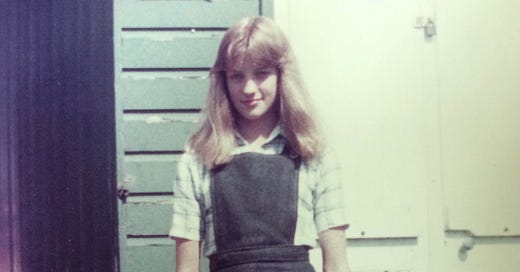



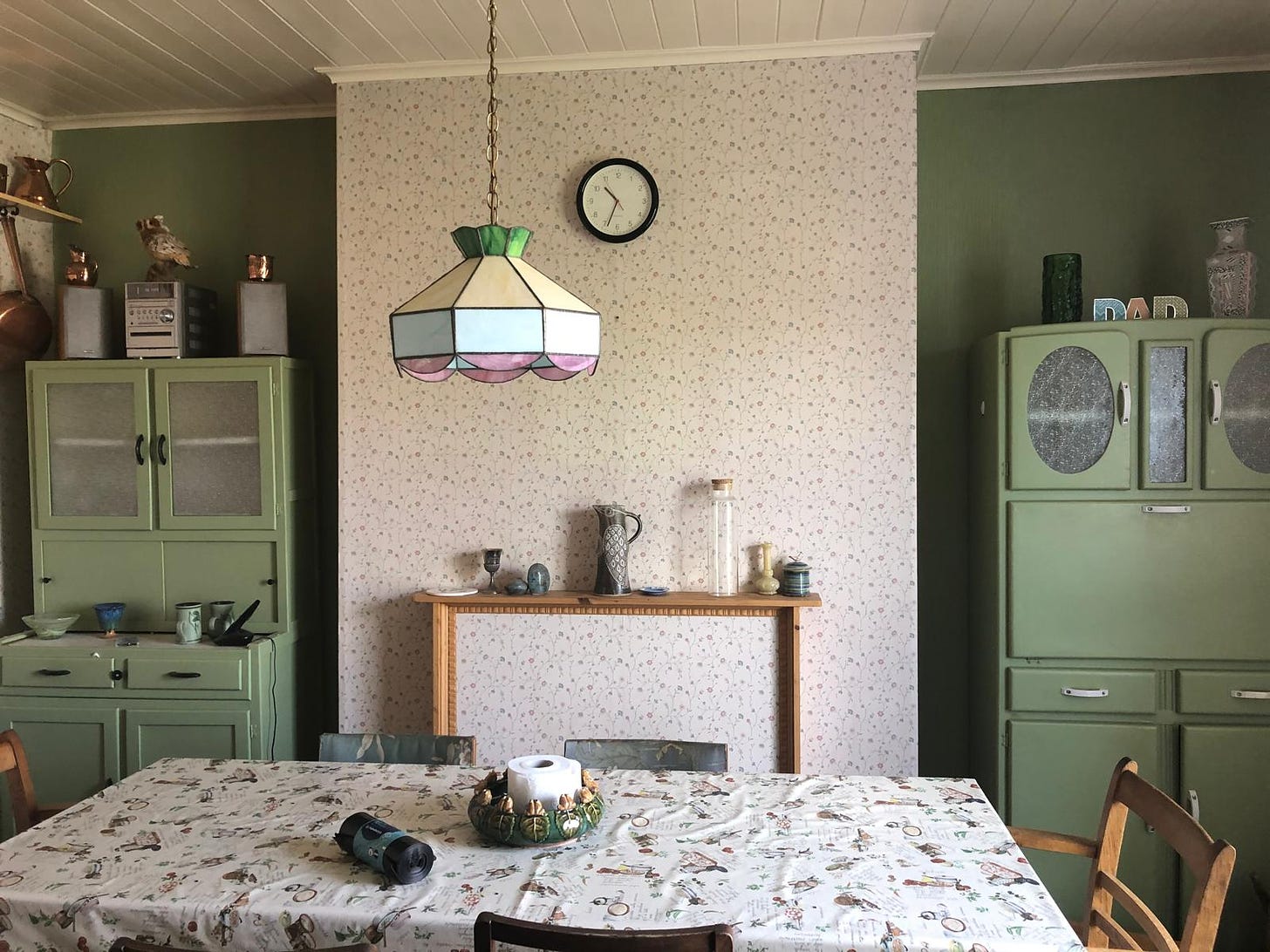
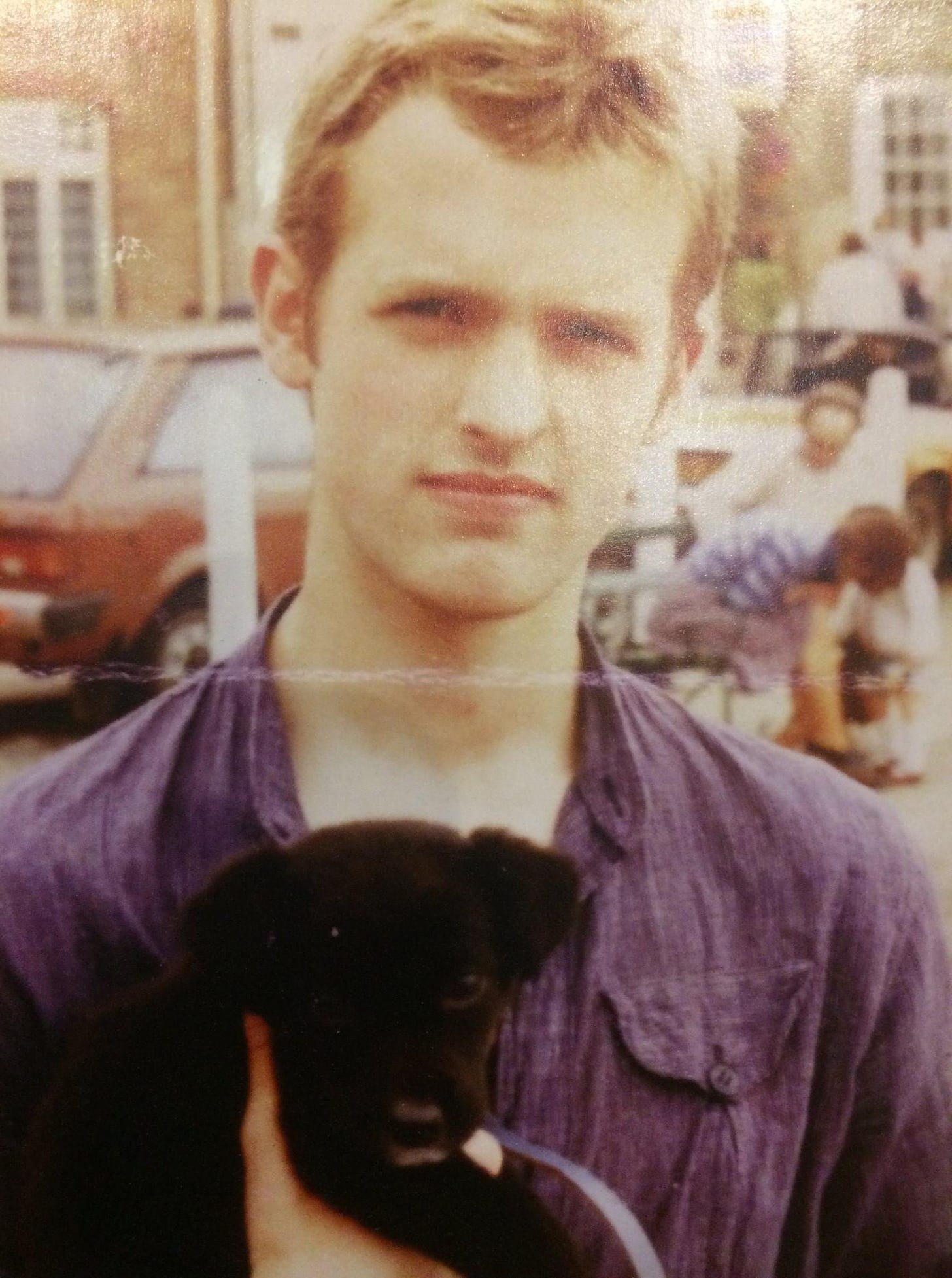
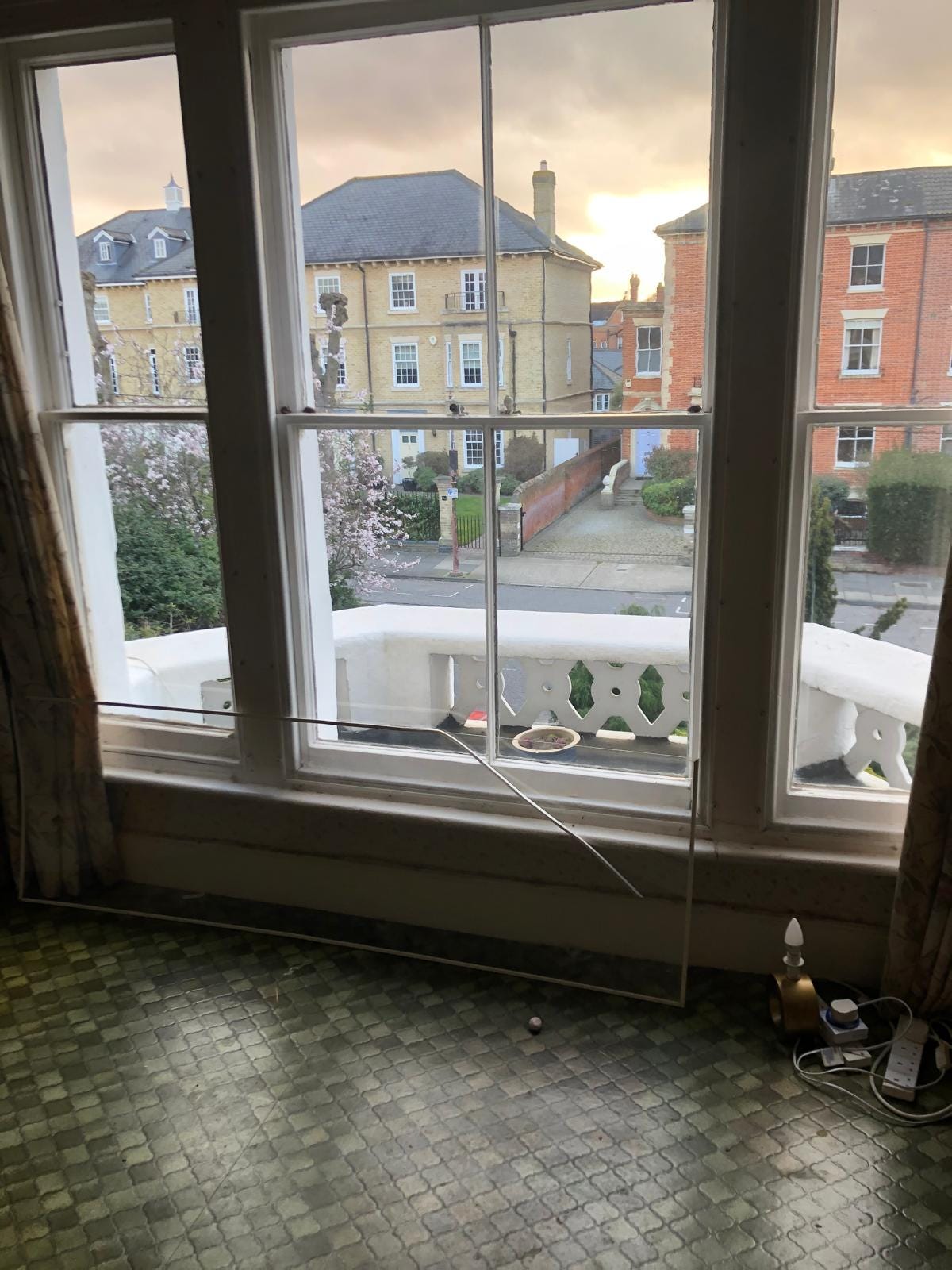
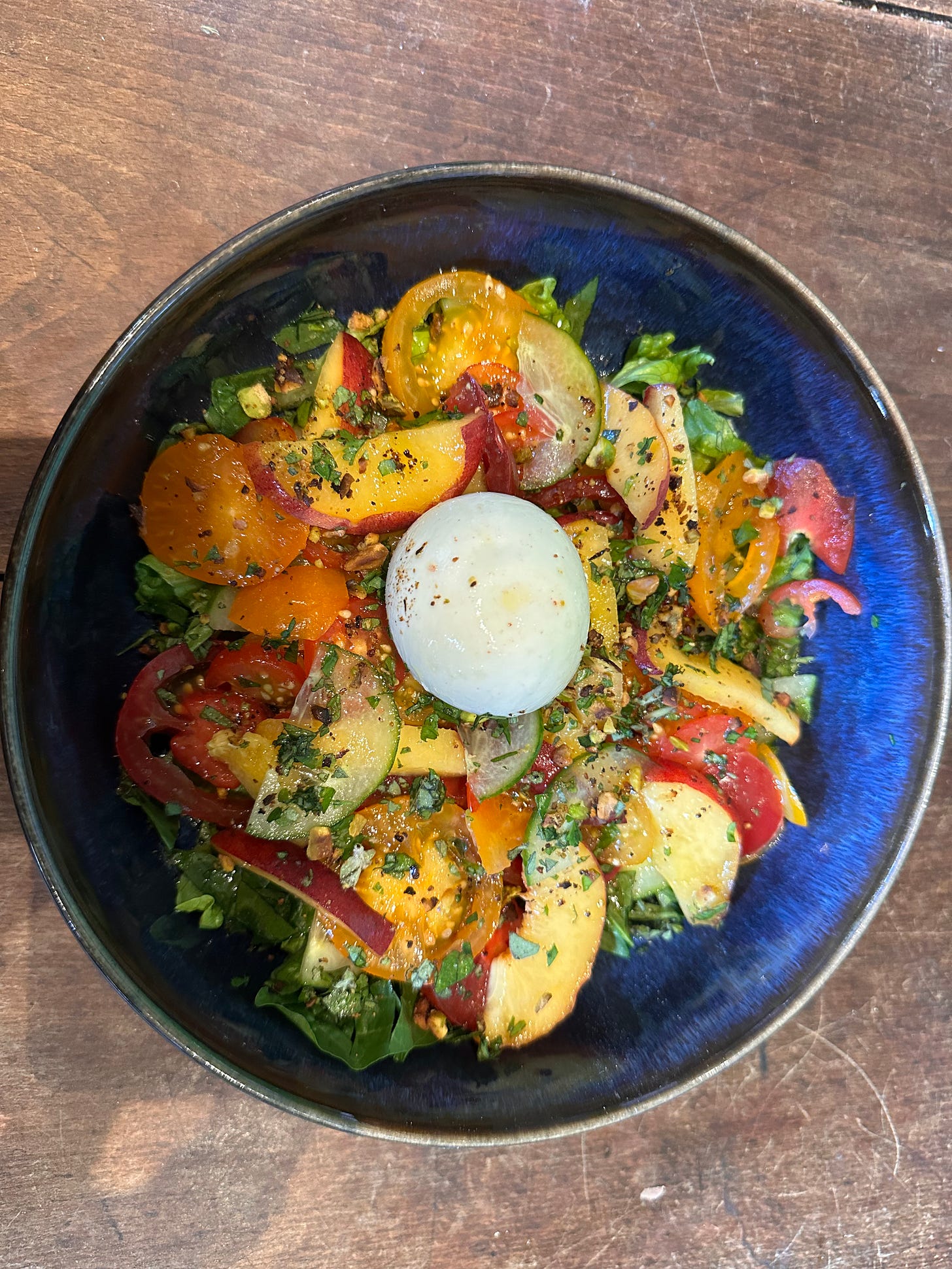

Your storytelling is masterful. I’m agape at the man’s pathological cruelty. No healthy person is that selfish / self-centered. Thanks for the reminder of the Larkin poem. It’s alchemical. I forget which British comedian said this bit, but it goes like this: you Americans are always going on about “dysfunctional families,” and whenever I heard that, I would get so confused. What is a “dysfunctional family?” Finally someone explained it to me and I said, “Ah. Here, we just call them ‘families’.”
'Heart-wrenching' doesn't do it justice. How terribly sad. Excellent poem, though!